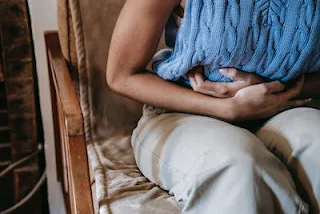Menstrual cramps, also known as dysmenorrhea, are a common and often uncomfortable symptom experienced by many menstruating individuals. They are caused by the contraction of the uterus during the menstrual cycle, as it sheds its lining. These contractions can lead to varying levels of pain and discomfort, ranging from mild to severe.
While menstrual cramps are a natural part of the menstrual cycle, there are a number of things that can be done to help alleviate the pain and discomfort that they cause. Here are some tips that can help you relieve period pain:
- Use heat therapy: Applying heat to the lower abdomen can help to relieve menstrual cramps. You can use a heating pad, a hot water bottle or take a warm bath. The heat can help to relax the muscles of the uterus, reducing the severity of the cramps.
- Exercise: Regular exercise can help to reduce the intensity and duration of menstrual cramps. Exercise releases endorphins, which are natural painkillers, and can help to increase blood flow to the uterus, which can reduce cramping.
- Use over-the-counter pain medications: Over-the-counter pain medications such as ibuprofen or acetaminophen can help to relieve menstrual cramps. It is important to follow the recommended dosage and to take the medication before the pain becomes severe.
- Eat a healthy diet: A balanced diet can help to reduce menstrual cramps. Consuming foods that are high in calcium, magnesium, and vitamin D can help to reduce the severity of cramps. It is also important to avoid foods that are high in salt, sugar, and caffeine as they can worsen menstrual cramps.
- Try relaxation techniques: Relaxation techniques, such as deep breathing, meditation, or yoga, can help to reduce menstrual cramps. These techniques can help to reduce stress and anxiety, which can make cramps worse.
- Consider taking supplements: Some supplements, such as omega-3 fatty acids, ginger, and cinnamon, have been shown to help reduce menstrual cramps. It is important to speak with a healthcare provider before starting any new supplement regimen.
- Stay hydrated: Drinking plenty of water can help to reduce menstrual cramps. Dehydration can worsen menstrual cramps and increase bloating, so it is important to drink plenty of fluids during the menstrual cycle.
In conclusion, menstrual cramps are a common symptom experienced by many menstruating individuals. However, there are a number of things that can be done to help alleviate the pain and discomfort that they cause. By using heat therapy, exercising regularly, using over-the-counter pain medications, eating a healthy diet, trying relaxation techniques, considering taking supplements and staying hydrated, you can help to reduce the severity and duration of menstrual cramps. If menstrual cramps are severe and interfere with daily activities, it is important to speak with a healthcare provider to discuss other treatment options.
Know about:







0 Comments